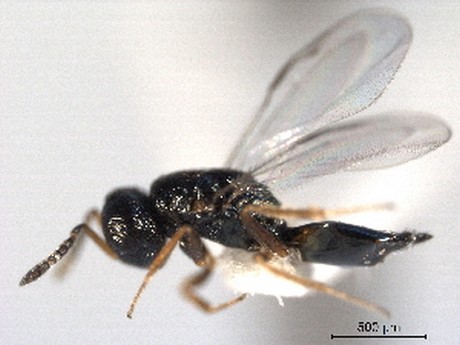Oregon State University researchers have found a parasitic wasp that has shown tremendous potential for attacking and controlling spotted wing drosophila, the destructive fruit fly that costs Oregon growers close to a billion dollars a year.
“The Spotted wing drosophila is very difficult to control,” said Vaughn Walton, professor and Extension entomologist in OSU’s College of Agricultural Sciences. “It’s got a very, very high reproduction rate, many generations a year. Because of that, when using pesticides, they have to be applied constantly, sometimes two to three times a week.”
Using that much pesticide is not economically or environmentally sustainable, Walton said. On average, spotted wing drosophila, also known by the acronym SWD, destroys 10% of fruit value. Management in the blueberry industry alone costs $100 million a year. Other crops affected include strawberries, raspberries, blackberries, cherries and, if conditions are right, grapes, a worrying possibility for Oregon’s wine industry. In Europe and the eastern U.S., the pest is already a serious problem in wine grapes.

But a tiny wasp (Pachycrepoideus vindemmiae) being studied by Walton and colleagues at OSU, could help stop spotted wing drosophila. “Based on the survival and host-killing capacity of the wasp, we have concluded that it has tremendous biocontrol potential against SWD,” Walton said.
Usually a parasitic insect burrows into its host, which can then produce antibodies to fight it off. But P. vindemniae lays its eggs on the outside of the larvae skin, avoiding the antibodies. That’s what makes it so effective, Walton said.
The parasitic wasp has gone through rigorous testing and Walton is awaiting a permit to raise and release the wasp in large numbers.
Source: miragenews.com